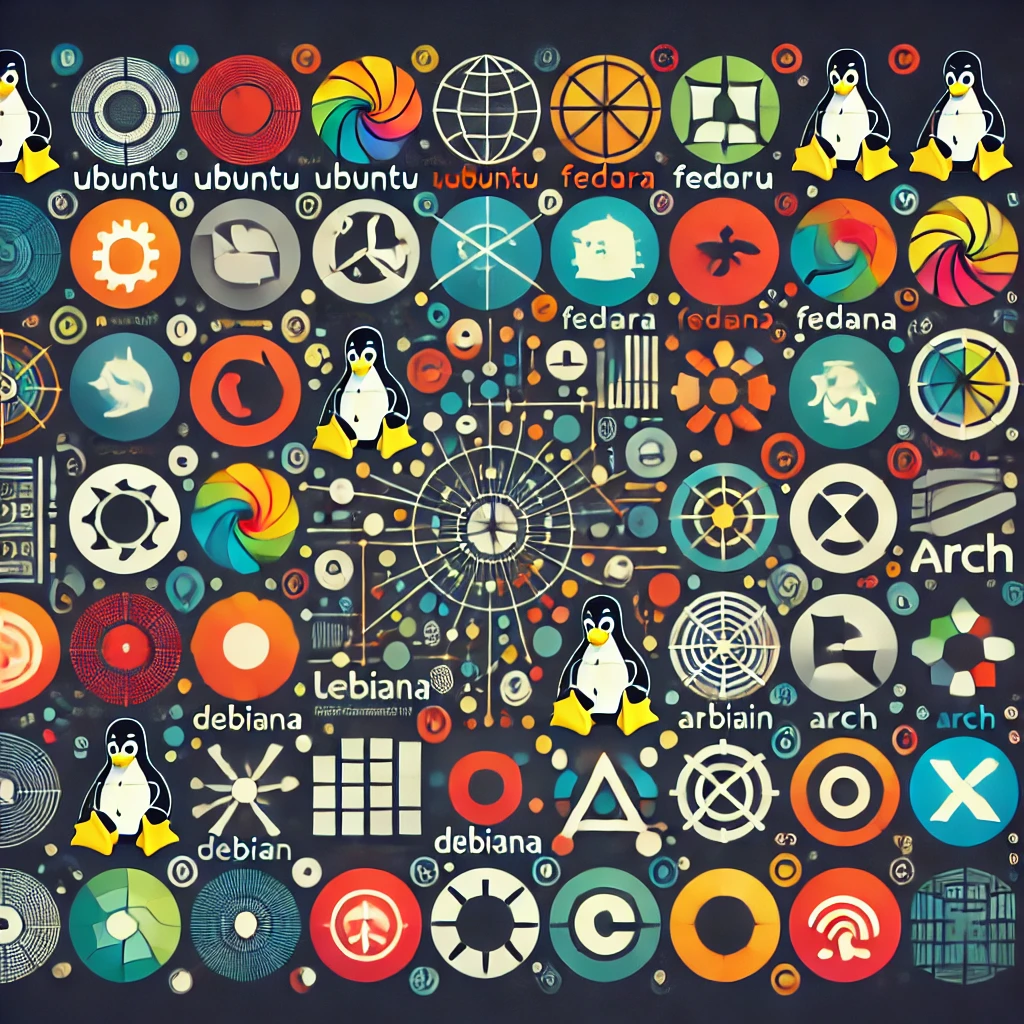A list of popular Linux distributions

Categories:
3 minute read
Here’s a list of popular Linux distributions, categorized by their main family or base system. This is by no means exhaustive, as there are hundreds of Linux distributions out there, but it covers some of the most widely used ones.
1. Debian-Based Distributions
Debian: The base for many other distributions, known for its stability.
Ubuntu: One of the most popular distributions, known for ease of use.
Kubuntu: Ubuntu with KDE Plasma desktop.
Lubuntu: Lightweight Ubuntu variant with LXQt desktop.
Xubuntu: Ubuntu with Xfce desktop.
Ubuntu MATE: Ubuntu with MATE desktop.
Ubuntu Studio: Ubuntu tailored for multimedia production.
Linux Mint: User-friendly distribution based on Ubuntu, available in Cinnamon, MATE, and Xfce editions.
Pop!_OS: Developed by System76, optimized for their hardware.
Elementary OS: Aesthetically pleasing distribution focused on simplicity.
Zorin OS: Designed to be user-friendly, especially for newcomers.
MX Linux: Lightweight and stable, based on Debian Stable. 2. Red Hat-Based Distributions
Red Hat Enterprise Linux (RHEL): Commercially supported, enterprise-focused.
CentOS: A free and open-source version of RHEL, now replaced by CentOS Stream.
CentOS Stream: A rolling-release version of CentOS, serving as an upstream for RHEL.
Fedora: Known for having the latest features, Fedora serves as the upstream for RHEL.
AlmaLinux: A community-driven replacement for CentOS.
Rocky Linux: Another CentOS replacement, led by one of CentOS’s original founders. 3. Arch-Based Distributions
Arch Linux: Known for its simplicity and control over the system.
Manjaro: User-friendly distribution based on Arch, available in multiple desktop environments.
EndeavourOS: A more accessible Arch-based distribution with a focus on customization.
Garuda Linux: A modern Arch-based distribution with a focus on gaming. 4. SUSE-Based Distributions
openSUSE Leap: The stable, regular-release version.
openSUSE Tumbleweed: The rolling-release version.
SUSE Linux Enterprise: The enterprise-focused version, akin to RHEL. 5. Gentoo-Based Distributions
Gentoo: Known for its flexibility, letting users compile packages from source.
Calculate Linux: Gentoo-based distribution designed for businesses.
Sabayon: Gentoo-based with a focus on ease of use, now discontinued. 6. Slackware-Based Distributions
Slackware: One of the oldest distributions, known for its simplicity.
Salix OS: A Slackware-based distribution, optimized for desktop use.
Porteus: A portable, lightweight distribution based on Slackware. 7. Other Notable Distributions
Linux From Scratch (LFS): A project that provides step-by-step instructions for building your own custom Linux system.
Void Linux: An independent distribution with a focus on minimalism and efficiency.
NixOS: Uses the Nix package manager to ensure system stability and reproducibility.
Solus: A rolling-release distribution with its own Budgie desktop environment.
Deepin: Known for its aesthetically pleasing Deepin Desktop Environment (DDE).
Clear Linux: A distribution by Intel, optimized for performance on Intel hardware. These are just some of the Linux distributions available. Each of these has its own strengths and is suited for different types of users, whether they are beginners, advanced users, developers, or enterprises.
Feedback
Was this page helpful?
Glad to hear it! Please tell us how we can improve.
Sorry to hear that. Please tell us how we can improve.